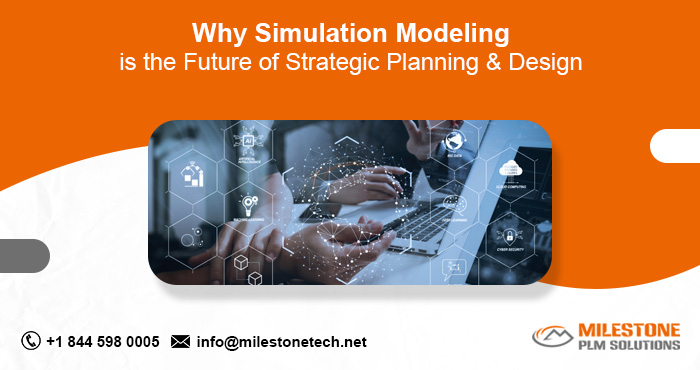Why Simulation Modeling is the Future of Strategic Planning and Design

In today’s rapidly evolving business landscape, organizations face complex challenges requiring more than just traditional planning techniques. The increasing complexity of systems, uncertainties in market conditions, and the need for quick decision-making necessitate a more sophisticated approach to strategic planning and design. This is where simulation modeling steps in, revolutionizing how businesses approach their strategies.
What is Simulation Modeling?
This is a method that uses mathematical models to replicate real-world systems and predict their behavior over time. By creating digital twins of processes, systems, or environments, organizations can analyze scenarios, anticipate outcomes, and make data-driven decisions. Unlike conventional forecasting or scenario analysis, It considers a wide range of variables, interdependencies, and potential uncertainties.
The Rise of Simulation Modeling in Strategic Planning
Traditional strategic planning often relies on static models that struggle to accommodate dynamic, unpredictable environments. However, It offers a dynamic approach, enabling planners to account for multiple variables and assess their interactions in real time. This capability to model complexity, test assumptions, and evaluate numerous scenarios makes simulation modeling indispensable in strategic decision-making.
Key Benefits of Simulation Modeling in Strategic Planning and Design
- Enhanced Decision-Making: It enables organizations to test various strategies before implementation. Decision-makers can explore ‘what-if’ scenarios, evaluate risks, and choose the most effective strategies, minimizing costly mistakes.
- Risk Mitigation: By analyzing different potential outcomes, simulation modeling helps businesses identify risks and develop mitigation strategies. This proactive approach to risk management is crucial in uncertain and volatile markets.
- Cost Efficiency: Instead of relying on trial-and-error or expensive physical prototypes, simulation modeling allows businesses to test changes in a virtual environment. This approach not only saves time but also reduces costs associated with failed strategies.
- Optimized Resource Allocation: With the ability to model various resource allocation scenarios, organizations can optimize the use of resources, ensuring maximum efficiency and profitability.
- Innovation and Design Optimization: Simulation modeling enables designers and engineers to experiment with new ideas, optimize designs, and innovate more effectively. By analyzing different design parameters, businesses can develop solutions that meet customer expectations while remaining cost-effective.
Applications of Simulation Modeling Across Industries
- Manufacturing: In manufacturing, It is used to optimize production lines, minimize downtime, and enhance efficiency. It enables manufacturers to predict the impact of design changes and operational decisions.
- Healthcare: Healthcare organizations use simulation modeling to optimize patient flow, manage resources, and plan for emergencies. It helps hospitals reduce waiting times, allocate staff efficiently, and enhance patient care.
- Construction and Engineering: It aids in project scheduling, resource allocation, and risk assessment. By analyzing construction processes, companies can reduce delays, control costs, and improve safety.
- Finance: In finance, simulation modeling assists in portfolio management, risk assessment, and market forecasting. It helps financial institutions evaluate investment strategies and prepare for market fluctuations.
- Supply Chain Management: It is pivotal in optimizing supply chain operations, reducing inventory costs, and managing disruptions. Businesses can simulate various scenarios to enhance logistics efficiency.
Future Trends in Simulation Modeling
As technology advances, simulation modeling is becoming more sophisticated. The integration of artificial intelligence (AI) and machine learning (ML) enhances the accuracy of simulations by processing vast amounts of data and identifying patterns. Additionally, the adoption of digital twins—virtual replicas of physical systems—enables real-time monitoring and optimization.
Moreover, cloud computing has made simulation modeling more accessible, allowing businesses of all sizes to leverage its capabilities. The increasing focus on sustainability and resilience also drives the adoption of simulation modeling to design eco-friendly and robust strategies.
Conclusion
Simulation modeling is not just a tool; it is a strategic asset that empowers businesses to make informed, data-driven decisions. As industries continue to embrace digital transformation, the role of simulation modeling in strategic planning and design will only grow stronger. By integrating simulation modeling into their planning processes, organizations can navigate uncertainties, optimize resources, and drive sustainable growth.
To stay competitive in a complex and unpredictable world, businesses must adopt simulation modeling as a fundamental component of their strategic planning framework.
Follow Milestone PLM Solutions for Mechanical Industry Updates, CAD Tips and Global Mechanical News.
Milestone PLM Solutions with its exclusive delivery center in India is a global CAD, CAM & FEA services outsourcing partner serving the needs of the Mechanical, Millwork and Automotive industry since 2004. MILESTONE focuses on the unique needs of clients and believes in tackling real-life problems with efficiency, smooth and ease.
The MILESTONE team can assist you with Product Design, 3d Modeling, Drafting & detailing, Reverse Engineering, FEA Analysis and more. We support multiple software including AutoCAD, SolidWorks, Catia, NX, Inventor, Solidedge & Ansys etc. Our approach is to provide a dedicated team for each customer over ongoing project and deliver the quality output consistently.
With our state of art technology and large talent pool of Engineers, we are developing best in class solutions for our customers across the globe. We align with your culture and values to form unbreakable partnerships and are primed for success with over 100 employees and 150 customers in the US, Europe, India, and Asia.
You can email us at info@milestonetech.net and can log in to our website www. milestonetech.net to know more about our services and our work portfolio or contact us on +1-844-598-0005
